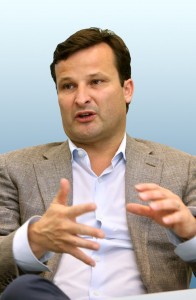Could Parenting Skills Be Transferrable To A CEO?
Penny Herscher is the Chief Executive of FirstRain, a business analytics firm based out of San Mateo, California. In a recent interview with Adam Bryant of the New York Times, Herscher drew some interesting parallels between her approach to managing children as a parent and managing a company as a chief executive. Here are some of the key points from the interview:
- Don’t hog the spotlight: “You need to let other people blossom and thrive” otherwise you’ll find yourself with employees that don’t want to work for you.
- Having kids can change the way you manage: “The things you learn raising a child are great skills for nurturing a team and bringing a project to life. You take obstacles out of the way, encourage them and set goals that are tough but can be achieved.”
- You need somebody who isn’t afraid to tell you the truth: “Many leaders with strong personalities never hear the truth because their people are afraid to tell them. The people who will tell you the truth are the most valuable people in your life.”
- As a CEO you can’t blame anyone else: You can look to a board of executives or shareholders for advice, but not permission. As a CEO “You are it! You have to make the decisions. You can collect advice, but nobody is going to make a decision for you, so just get on with it and make the decisions. If they’re right you’ll be fine, and if they’re wrong you’ll be fired.”
- When hiring, look for “I.Q, integrity and energy, because you can’t teach those.”
- Ask questions in interviews that tell you MORE about the candidate: “What makes you really special,” “how do you grow your employees” and “what’s your natural strength” are great examples.
Click here to view the full article from the New York Times.



